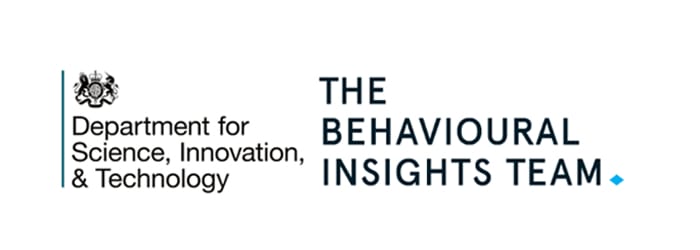We will shortly be sharing the process for two ordinary SPAN members to join the SPAN Board. If you are interested please note the roles are open to members of academia only and previous SPAN Board members are also able to apply. If you want a quick chat to discuss the opportunity, please email info@span.ac.uk
We are looking to appoint the following roles at the next SPAN Working Group meetings, they are for:
If you would like to be considered as a Lead or Deputy for the SPAN Working Groups please email info@span.ac.uk
The UK Space Agency Annual Report and Accounts 2023-2024 highlights the Agency’s work and finances between April 2023 and March 2024.
This includes our infrastructure investments from Cornwall to Scotland, our various programmes and funding activities as well as information about the missions and projects the Agency has recently been involved with, such as Euclid and the Jupiter Icy Moons Explorer (JUICE).
During this period the Agency made £642m of funding available to the sector and completed 78% (51) of the 65 milestones we set out to deliver at the start of the year.
The Size and Health of the UK Space Industry 2023 report, which represents the latest annual research of the UK space sector.
New figures show the UK space sector generated £18.9billion income in 2021/2022 and that direct employment grew 6.7% year-on-year, to hit 52,000.
The UK Space Agency have today announced a joint plan, with the European Space Agency, to build on the success of the European Centre for Space Applications and Telecommunications (ECSAT), which employs more than 100 people in Harwell.
The joint plan, unveiled during the Farnborough International Air show, includes strengthening work on the centre’s 5G/6G hub with a focus on satellite telecommunications and the wider applications of satellite services, which already support around £360 billion of UK GDP.
We will explore the potential for a space quantum technologies laboratory and the further development of activities related to in-orbit servicing, assembly and manufacturing – vital for improving sustainability, prolonging the lifetime of satellites in orbit, and delivering new services to businesses and citizens.
The UK Space Agency has also announced five new projects, worth £2.1 million, to help tackle key skills gaps identified by the UK space industry. The funding will boost the availability of training programmes, courses and other learning interventions that can break down barriers to opportunities within this fast-growing, high-tech sector.
The projects will be led by the universities of Edinburgh, Leicester and Portsmouth, the Royal Institute of Navigation, and Plastron Training, a specialist provider of training services focused on safety in the commercial space sector.
For more information:
The UK Space Agency and ESA are also running a new call for proposals for the ESA Earth Observation (EO) programme, InCubed2, worth £3million. Interested UK entities are invited to submit proposals that look to develop innovative and commercially viable products and services that generate or exploit the value of Earth observation imagery and datasets. Deadline for applying 10:59pm BST on 12 September 2024.
UK Space Agency announced funding for projects, worth £33 million, from our National Space Innovation Programme (NSIP) –designed to invest in high-potential technologies, drive innovation and unlock growth across the UK.
Eight major projects will receive £24 million of the total amount. These include funding for a sub-orbital rocket test by HyImpulse (Glasgow) from SaxaVord spaceport in Shetland, support for RollsRoyce (Derby) to develop micro reactors to support space exploration, and backing for Cambridge University spin-out SuperSharp to develop and launch a heat-detecting telescope to gather data that can be used to help tackle the climate crisis.
The funding will also support Lunasa (Harwell)to build and test technology to help satellites safely dock with one another, Orbit Fab (Harwell) to develop a solution for satellite refuelling, and Wayland Additive (Huddersfield) to develop an electronic propulsion system.
A project led by Spire Global (Glasgow) will further develop technology to supply unique weather forecasting data to global weather prediction centres, while ETL Systems (Hereford) will advance revolutionary ground equipment that links satellites to 5G and 6G mobile networks, improving connectivity.

Do you work in research or innovation? The DSIT Research and Innovation Workforce Survey, conducted every two years, is now open. Take the survey to have your voice heard!
Your insights are invaluable in shaping the future of research and innovation. Whether you’re a scientist, a researcher, or an innovator, your contribution will help us understand the current landscape and the needs of those at the forefront of discovery.
Previous Page |03 December 2025
The UK Space Agency has today announced the recipients of the National Space Innovation Programme (NSIP). We extend our warmest congratulations to the academic and industry teams whose projects have been selected for support.
26 November 2025
Thank you to everyone who joined our November SPAN Town Hall. Below is a brief overview of the key updates shared across the community.
28 October 2025
We’re pleased to announce that our SPAN Whitepaper, Bridging the Gap Between Industry and Academia – led by Anushka Sharma and Professor Mark Sims (University of Leicester / SPAN), is now available to read. The paper sets out practical ways to deepen collaboration across the UK space ecosystem, including: Co-design from day zero with early academic […]